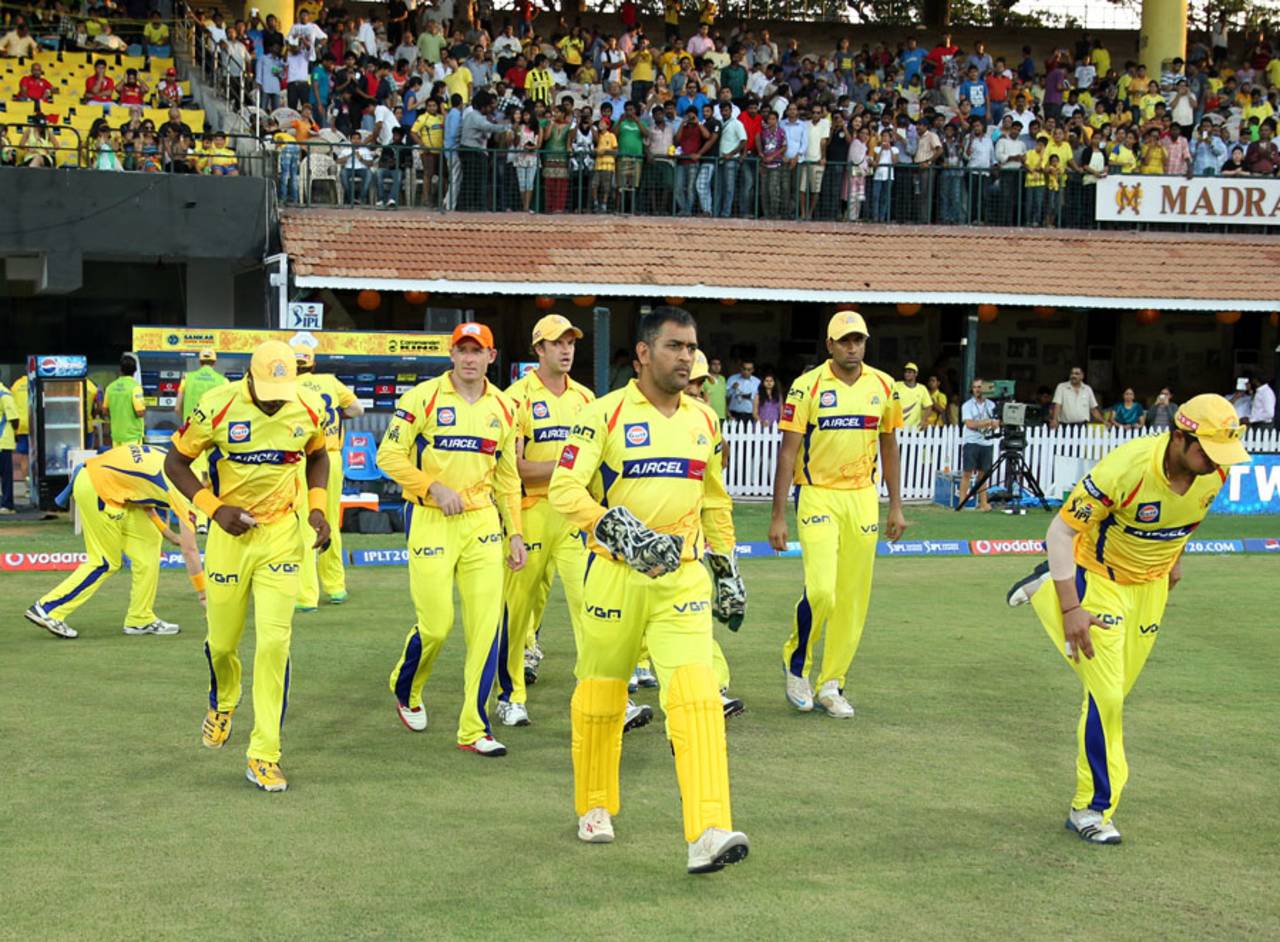What makes the IPL successful?
Is it the marriage between cricket and entertainment? The T20 format? Or just its power to grab a prime chunk of the game's calendar?
Mahesh Sethuraman
06-May-2013

The IPL's selling point is that spectators get to watch Indian stars and a few foreign ones play against each other for two months at a stretch • BCCI
It's the season of cricketainment. I watched Sanju Samson's forward defence serve as a wonderful backdrop for a thrilling dance contest between two sets of cheerleaders, with delightful commentary from Sameer Kochhar.
That's when I had an epiphany. I got what the IPL is about. It's really what the markets want.
If there is a more stupid term than cricketainment, I do not know of it. The IPL was always marketed as cricketainment, and coupled with its commercial success, the reasoning developed that it's the entertainment that gets it the eyeballs.
Cricket was always there - was it so successful before? No. So what has changed now? The entertainment. People love seeing the cheerleaders, Shah Rukh Khan and all the other Bollywood stars share screen space with the cricketers. It's a family package, there's something in it for everyone. You spin the yarn enough and it can appear coherent. The commercial success of the tournament has served to provide a feedback loop.
What if the IPL had been just about cricket? Would the commercial results have been any different? I would happily bet against it. The real selling point of the IPL is the opportunity to see cricket superstars in action all the time. In fact, even absolute loyalty for franchises is not good for the tournament. You may passionately support your team, but you must be excited to watch various other stars in action over a period of two months.
As an aside, is the league designed to build loyalty at all? Players are thrown back into the auction pool after three years, the ownership of franchises is for a limited tenure of ten years, the grounds are hired, and there is no junior set-up. Of course, some franchises are powerful enough to change the rules to suit themselves and hence there is a semblance of stability in some teams. Otherwise the loyalty is really about cheering one's city and/or favourite players. Bah! Internet forums offer greater scope for that.
By virtue of being commercially successful, the IPL has lent extraordinary credibility to the T20 format. Tests v T20s was never an ideological debate before the IPL. Now it's as much about a conflict of ideology as it is about differences in taste.
The IPL is successful not so much because of the format of the game but because of the format of the tournament - mostly Indian stars, with some foreign ones thrown in for good measure, playing against each other every day for two months.
I am not sure if the IPL would have been any less commercially successful if it was played in the 50-overs format. Pit Dhoni against Yuvraj, Tendulkar against Dravid, Steyn against Pietersen. The overall audience might have been smaller and it may not have brought in as many new viewers (the ones Sanjay Manjrekar called "Alphonso fans") into the game as the IPL in its T20 avatar has done, but then ODIs provide a bigger advertising market than T20s do. In terms of commercial success alone, an IPL with 50-over games could have been as big an idea, if not bigger. The biggest source of cricket revenue is broadcast rights. An ODI in India fetches about four times what an IPL match does.
It's ironic that often it's the people who sing a dirge for the death of ODIs who celebrate the IPL for its riches. The logic seems to be: "I think ODIs are outdated, so they have to be done away with. You may think T20 is mediocre but the market pays for it, so shut up."
In effect, the IPL has bulldozed its way into the two most profitable months (given school vacations are on and advertisers are more inclined to spend at the start of the financial year) of the most lucrative cricket market.
For all the tripe about the entrepreneurial spirit of the IPL, it's really its power to have secured a prime chunk of the cricketing calendar for a supranational tournament disguised as a domestic tournament, with utter disregard for the existing domestic regulatory guidelines for sports broadcasting, that has made the league the commercial bonanza it is today.
When he's not watching / talking / tweeting / reading cricket, Mahesh Sethuraman works in a bank in India to pay his bills. He tweets @cornerd